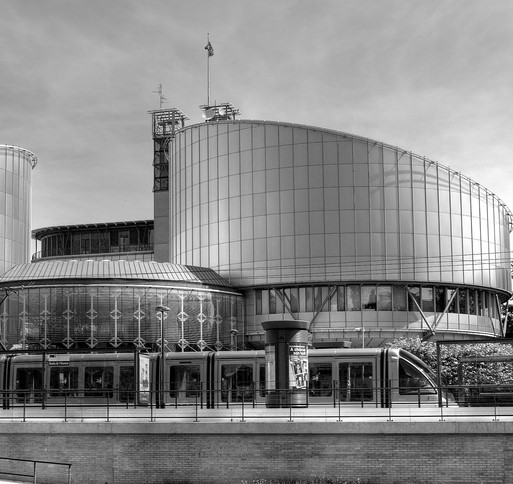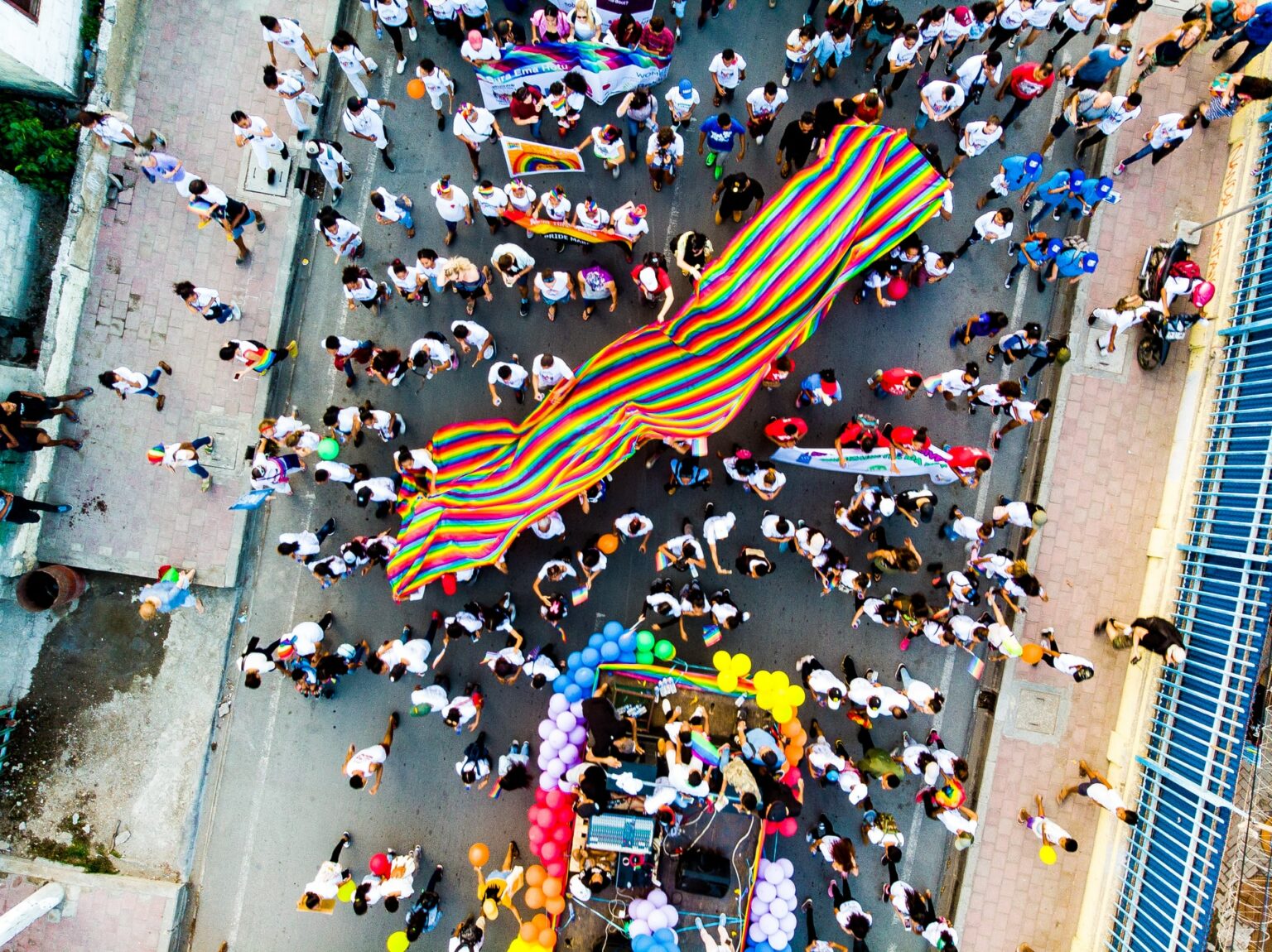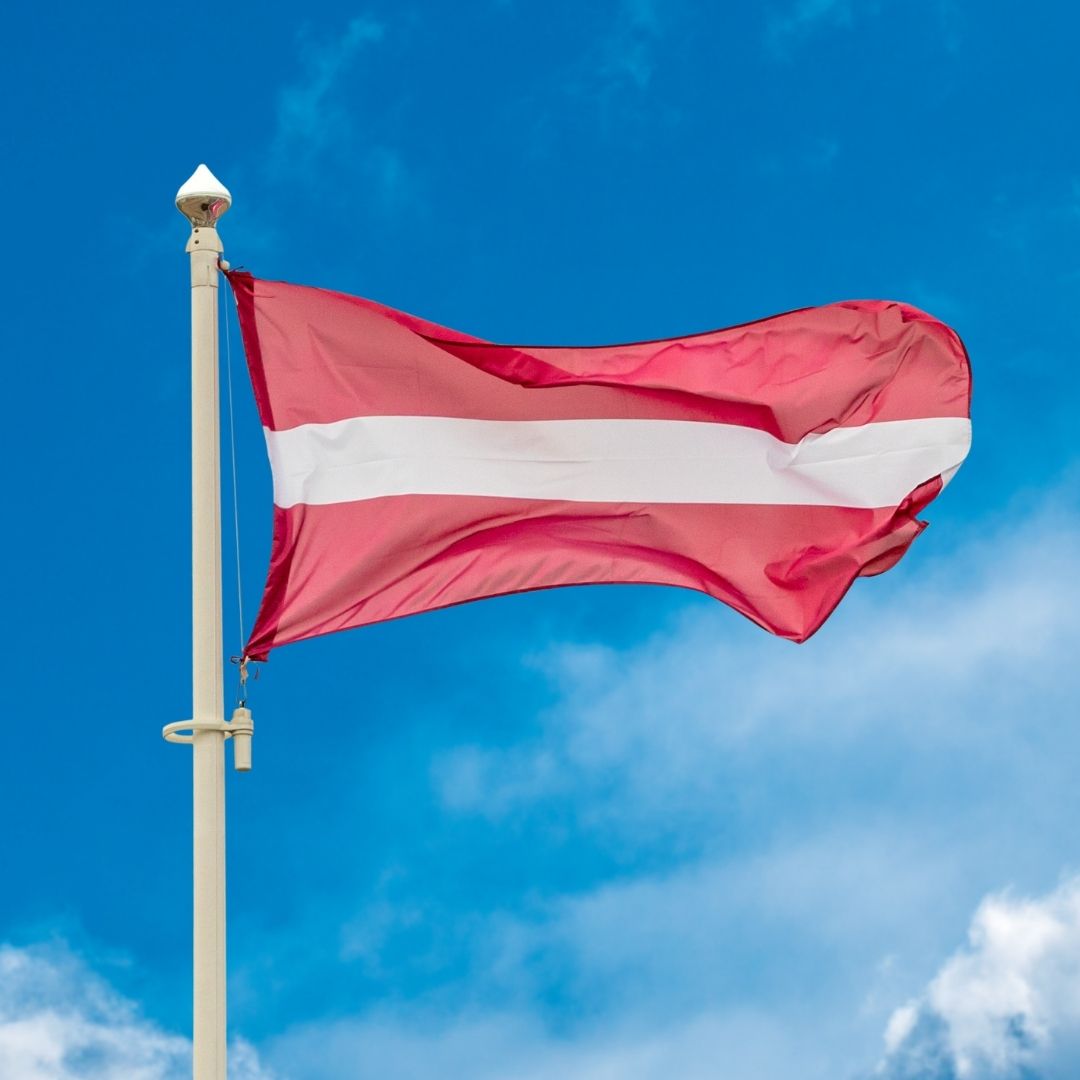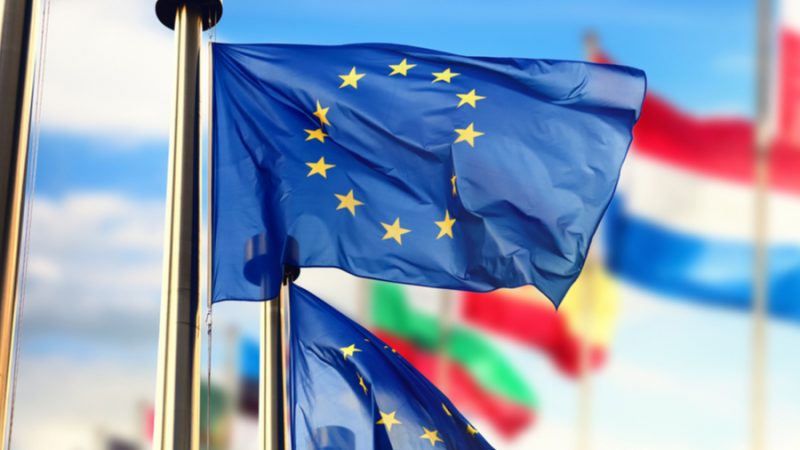Latvia failed to protect human rights of victim of a homophobic attack, european Court finds

The European Court of Human rights has made a judgement in a case where the Latvian authorities declined to prosecute an anti-LGBTI attack as a hate-motivated offence
Earlier this month, in the case of Hanovs v. Latvia taken by the victim of a homophobic assault, the European Court found a violation of Article 3 of the European Convention on Human Rights (prohibition of torture and inhuman or degrading treatment) and Article 8 (right to private and family life), together with Article 14 (prohibition of discrimination).
The case concerned the attack on the applicant and his partner, a gay couple, when they were walking in Riga. The two perpetrators of the attack shouted homophobic slurs and physically assaulted the applicant. The applicant avoided further violence by fleeing into a shop and securing the door. The police and prosecutors declined to prosecute the attack on the applicant as a hate-motivated offence.
The Court found that the authorities had failed to offer adequate protection in respect of the individual applicant’s dignity and private life by ensuring effective prosecution of the attack against him, and to effectively investigate the hate motive behind the attack.
Importantly, the Court considered that “attacks on LGBTI individuals, triggered by expressions of affection constitute an affront to human dignity” so that the attack “not only undermine[d] the victims’ physical safety but also their emotional and psychological well-being, turning a moment of intimacy into one of fear and trauma.”
Furthermore, the Court ruled that such attacks “humiliate and debase the victims, conveying a message of inferiority of their identities and expressions.” As such, the case fell within the scope of Article 3 of the Convention (inhumane and degrading treatment).
The Court also pointed out the crucial importance of addressing impunity in cases of hate crimes as “failure to address such incidents can normalise hostility towards LGBTI individuals, perpetuate a culture of intolerance and discrimination and encourage further acts of a similar nature.”
Welcoming the judgement, ILGA-Europe’s Senior Strategic Litigation Officer, Marie-Hélène Ludwig said: “This judgment sends a strong signal in recalling State’s positive obligations in effectively addressing hate crimes against LGBTI people in Latvia and across Council of Europe member States amidst the rise in hate incidents in a number of countries.”
The judgment can be accessed here.
The stark situation for LGBTI rights in Eastern Europe and Central Asia

Hungary and Poland have been in the spotlight a lot for their anti-LGBTI policies, but they are not the only countries where political leaders are acting against LGBTI communities. Here, we take a look at the political situation for LGBTI people in Eastern Europe and Central Asia in the first half of 2021.
The COVID-19 pandemic and anti-LGBTI forces have deeply impacted the LGBTI movement in Europe and Central Asia. Some governments used the health crisis against human rights defenders by limiting their use of public space, while the same restrictions have not applied to many of the activities of the anti-LGBTI movement. As a result, the pandemic has accelerated deterioration of the human rights protection systems, disrupted effectiveness of monitoring and documentation, and made the work of activists even more precarious. The worrying trends that began in 2020 continue to grow this year as a number of laws proposed and adopted in different countries limit the ability of civil society to answer to current challenges and political crackdowns.
The Dignity for All: LGBTI Assistance Program is a consortium formed by ILGA-Europe and seven other leading human rights and LGBTI organisations around the world. It provides emergency assistance, advocacy funding, and security support to human rights defenders and civil society organisations under threat or attack due to their work for LGBTI rights. Since 2012, the program has provided emergency assistance grants to human rights defenders and civil society organisations in 95 countries and territories.
Thanks to this program, we’ve been able to support the movement in the region for almost a decade. The number of requests for emergency assistance in the first six months of 2021 has considerably increased. A lot of requests were related to the repercussions of anti-LGBTI actions, the pandemic, and wellbeing issues, along with the usual security assistance provided by the program.
Through this work, we’ve been able to assess the context in the region and provided funding to civil society organisations to respond to developments like those described below.
Take a look at the political situation for LGBTI people in Eastern Europe and Central Asia in the first half of 2021:
Albania: hate speech and hate attacks
In mid-June a trans activist in Tirana was physically attacked one week after heavy hate speech in the media around a discussion on LGBTI family rights. The debate was manipulated with headlines such as ”The LGBTI community aims to remove the word mother”. Other activists in Albania received hundreds of targeted death and rape threats. This clearly shows the trend of online hatred spilling over to the real world when the perpetrators feel encouraged by hate speech to physically attack activists and the LGBTI community.
Armenia: ground-breaking judgment for LGBTI people
While the LGBTI movement continues to deal with the shockwaves of the Nagorno-Karabakh conflict, a ground-breaking judgement was delivered in Yerevan, Armenia in May, finding discrimination based on gender identity and sexual orientation in a case concerning denial of access to a sports club services to two trans people and a gay man. For the first time the court applied the Armenian Constitution, the European Convention on Human Rights and the case law from the European Court of Human Rights on discrimination in relation to sexual orientation and gender identity discrimination. The decision sets an important precedent for national case law and is a milestone in ensuring equal rights to accessing services as well as other areas of life for LGBTI people living in Armenia.
Belarus: amendments to the law could backfire against LGBTI groups
In spring, amendments to the law ‘On Counteraction to Extremism’ were adopted. The new definition of extremism is formulated in a vague way and could be applied to LGBTI groups’ activity. The wording goes: “Extremism is considered incitement to hostility or discord, including against public order and public morality, property, health, personal freedom, honor and dignity of the individual, and the structure of family relations.” The draft was not published on official websites for consultations until it was signed by the President. It is currently in force in a context that is increasingly unsafe for any dissent.
Bulgaria: anti-LGBTI rhetoric and threats to events
As in previous years, right wing parties used anti-LGBTI rhetoric to misinform the population and win voters ahead of the elections that took place in July. After LGBTI activists received threats to their physical security and to their events, they requested additional security measures during Pride marches.
Kyrgyzstan: Constitution limiting human rights
In April, Kyrgyzstan adopted a new Constitution following a nationwide referendum. Nearly 80% of the voters backed the new Constitution containing provisions that could potentially restrict LGBTI activism. One of them, aiming to ensure financial transparency of public associations, is very similar to the law on “foreign agent” in Russia, which has significantly restricted the activities of human rights organisations. Another harmful provision reads: “in order to protect the younger generation, activities that contradict moral and ethical values and public conscience of the people of the Kyrgyz Republic may be restricted by law”. This provision might prohibit any LGBTI community organising and movement-building activities in Kyrgyzstan. A video was released demonising an LGBT+ organisation, revealing the names of most of the staff members, misgendering and publicly outing them.
Latvia: LGBTI family rights move backwards
In January, the Latvian Parliament passed a draft law to restrict the definition of family in the Constitution, ruling out same-sex partnerships and same-sex families. This contravenes international human rights law and European jurisprudence, as well as Latvia’s Constitution and the decisions of its Court. Latvia is one of only six countries in the EU that provides no recognition of partnership for same-sex couples and while there have been promising developments in the last two years, this vote is a worrying step backwards.
Turkey: official hate speech and withdrawal of the Istanbul Convention
On 27 December 2020, the Turkish Parliament passed a new NGO law called “Bill on Preventing the Spread and Financing of Weapons of Mass Destruction”. However, only six articles include means and regulations to combat financing of terrorism. The rest grant the Ministry of Internal Affairs and the President wide authority to restrict the activities of civil society organisations. According to the law, the Minister can suspend the board members of NGOs and apply to the court with an immediate request of shut down the organizations, NGOs might not be able to access funds and grants from abroad upon the decision of the Minister, and official audits can be conducted by any civil servants who usually don’t have competence and loyal to the government. Many organisations have already received notes of upcoming audits just weeks after the law came into force.
Hate rhetoric from authorities against the LGBTI community and activists continues in 2021, creating an atmosphere of LGBTI hatred in society. President Erdo?an has declared: “There is no such thing as LGBT. This country is nationalist, spiritualist and is walking to the future with these values” and “let’s not worry about what lesbians say”. Another prominent figure in Turkey, the Minister of Interior, Süleyman Soylu was banned on Twitter twice after saying “LGBT perverts”. He also referred to LGBT as “perversion” during a live broadcast on Haber Global television channel and added “this LGBT thing is something that is being propagated to us from Europe and the USA. This thing can break our family structure.”
In March, Turkey announced its withdrawal from the Istanbul Convention by a Presidential decree, without debates in Parliament and society at large. This is a huge step back for protecting women’s rights and a negative precedent for other countries that are signatories of the convention.
In June, Istanbul Pride was banned for the seventh year in a row. In protest, the march took place on Saturday, 26 June. Police arrested almost 50 people, including journalists, violating their right to freedom of assembly and expression. Several hours later people were released and no charges were pressed.
Ombudsman of the Republic of Latvia issues historic opinion regarding recognition of same sex partnership

On 29 October 2018, the Office of the Ombudsman of the Republic of Latvia issued an opinion calling the Ministry of Justice and the Saeima (parliament) of the Republic of Latvia to introduce a framework for the recognition and protection of same-sex families.
The opinion recognises that in the 21st century marriage cannot be seen as the only basis for the formation of a family, as families take many different forms, including between partners of the same sex. Furthermore, Ombudsman writes:
“The legislator must be able to make decisions that may not enjoy the support of the majority of society, but the adoption of which is necessary to ensure the fundamental rights of different groups within society and the fulfilment of international obligations of the state.”
This opinion sends a strong signal to the Ministry of Justice and the Saeima (parliament) of the Republic of Latvia that same-sex families are also entitled to protection from the state, and marks an important step towards ensuring equality for LGBTI people in Latvia.
Kaspars Zalitis, board member of the Association of LGBT and their friends Mozaika comments: “This is a historic occasion, as this is first such positive message for the human rights of LGBT people since the establishment of the Ombudsman institution in Latvia. It is a game-changer, and we look forward to working together with authorities to ensure the Ombudsman’s recommendations are met”.
- In 2018, Latvia ranked in 40th place, last among EU member states, on ILGA-Europe’s Rainbow Map.
- Earlier this year the Mandate, Ethics and Submissions Committee of the Saeima of Latvia, rejected a petition for introduction of partnership legislation which would recognise all unmarried couples, including same-sex couples for the second time.
- The Ombudsman’s opinion in Latvian can be found here, and in English here.
Latvia parliament rejects partnership legislation petition

Yesterday, the Mandate, Ethics and Submissions Committee of the Saeima (parliament) of Latvia, rejected a petition for introduction of partnership legislation which would recognise all unmarried couples, including same-sex couples. This is the second time the Saeima rejected such an initiative.
Here is a short FAQ providing insight into the news, including reactions from LGBTI activists:
I’m hearing news about partnership laws in Latvia. What’s going on?
The Mandate, Ethics and Submissions Committee of the Saeima (Latvia’s parliament) considered a petition that called for the introduction of partnership legislation for all families. On Wednesday, 7 March 2018, the committee rejected the proposal, with five votes for rejection, twp abstentions, and two against rejection, ending its journey through parliament.
Committee MP Raivis Dzintars (National Alliance) called for a dismissal of the initiative on grounds that it would be a first step towards equal marriage, while the head of the committee, Vit?lijs Orlovs (Harmony), was supportive of the initiative and urged members to submit the petition further to the Human Rights and Public Affairs committee.
Was the proposed legislation specifically for same-sex couples?
No, the proposed legislation would have enabled any couple, same-sex or different-sex, to register their partnership and receive state recognition and protection, akin to that received by married couples.
The author of the petition submitted it with the aim of achieving recognition for thousands of Latvian families who are currently not recognised as such under the law. Unmarried couples have no right to, for example, make medical decisions on behalf of their partner, they do not have inheritance rights, tax incentives or other forms of legal protection.
Tell me more about the petition?
Following the vote by Estonian MPs to support cohabitation laws that protect all couples in 2015, member of the Riga City Council and chairperson of the party “For Latvia’s Development” Juris P?ce called on Latvia’s parliamentarians to pass similar legislation. He submitted the initiative directly to the Saeima, where it was swiftly rejected. Following the rejection, in March 2015, P?ce initiated a petition to collect 10,000 signatures in support of the partnership law via the civic engagement online portal ‘My Voice’ (Manabalss.lv). The 10,000 threshold was reached in December 2017.
What is the significance of 10,000 signatures?
According to Latvian legislation, the Saeima is required to consider any initiative which is signed by 10,000 citizens. The online portal “My Voice” was founded in 2010 by two social activists with the aim of enabling the Latvian public to submit initiatives, gather support for them and submit them for consideration to the Saeima.
What legal protection do same-sex couples currently have?
In Latvia? Not very much. Unlike their different-sex family, friends, neighbours and colleagues, same-sex couples in Latvia cannot marry, enter civil partnerships or access adoption procedures together. Their relationships are not recognised by the state and they cannot have a legal link with their partner, a fact that can cause many difficulties in day-to-day life.
Its neighbour Estonia became the first former Soviet state to recognise same-sex partners under the gender neutral Cohabitation Act in 2014.
What does that mean for same-sex couples in Latvia now?
For now, it means that this particular initiative, which would have provided protection for different-sex and same-sex couples currently living in Latvia was unsuccessful. But LGBTI NGOS and activists are committed to pursuing equality and will keep advocating for a practical law.
What do LGBTI activists say?
“We are truly disappointed this initiative was rejected before it even reached the relevant Parliament committee. What saddens us most is that some politicians take pride in rejecting it and consider it an ‘achievement’. This year, when Latvia is celebrating its 100 year anniversary, we need to be united, instead everything is done to divide us. Parliament just sent a clear message that not everyone is equal and thousands of families do not belong in this country. This is not a way to celebrate Latvia’s 100. We should be ashamed,” said Kristine Garina, Association of LGBT and their friends MOZAIKA.
“Recognising the diversity of families which exist in today’s society doesn’t change social norms or impose social changes; it merely brings legislation in line with reality. It is incredibly disappointing to see that the parliament of Latvia rejected the initiative for partnership legislation for ALL families despite over 10,000 citizens expressing their support for it. As such, Latvia continues to be one of only 6 member states of the EU to not have any recognition or protection of rainbow families, and maintains its position as the least favourable place for LGBTI people in the EU,” commented Juliana Teoh, ILGA-Europe Advocacy Officer.
Meeting the challenge of accession

Surveys on sexual orientation discrimination in countries joining the European Union.
This report is a comparative summary of national reports written in ten countries (Czech Republic, Estonia, Hungary, Latvia, Lithuania, Malta, Poland, Slovakia, Slovenia and Romania). It highlights the violence and discrimination some people face because of their sexual orientation.
The data and statements collected show that discrimination on grounds of sexual orientation affects several areas of the life of lesbian, gay and bisexual (LGB) people. Discrimination exists in the family, in education, in the workplace, in the army, in health services, in housing and in the church. In order to end such discrimination and human rights abuses, the report puts forward some recommendations to the new member states and to the European Union institutions.
These recommendations concern changes in the law, policies and practices affecting LGB people in the accession countries. It aims at reinforcing the instruments dealing with discrimination in the EU and in the member states.
Equality for lesbians and gay men- a relevant issue in EU accession process

This report, from 2001, maps the legal and social situation of lesbians and gay men in 13 candidate countries to EU accession.
Three years after the publication of the “Equality Report” on the situation of lesbians and gay men in the EU Member States, ILGA-Europe has produced the current report, “Equality for Lesbians and Gay Men – A Relevant Issue in the EU Accession Process”, with a view to filling the information gap regarding the situation for lesbians and gay men in the candidate countries. The report was produced as part of the project “Lesbian and Gay People in Candidate Countries to EU Membership”.
All 13 accession countries are represented with individual reports: Bulgaria, the Czech Republic, Cyprus, Estonia, Hungary, Latvia, Lithuania, Malta, Poland, Romania, Slovakia, Slovenia, and Turkey. A further chapter presents the European Union’s legislation and policies that are relevant to the rights of lesbians and gays in the accession countries, policies which have developed very significantly in the recent past.